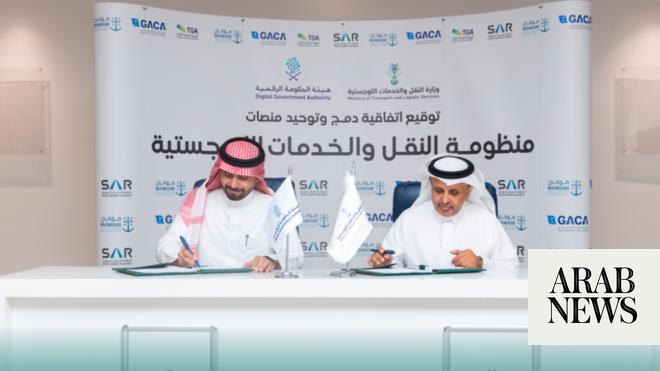
A recent international report praised Saudi Arabia for the measures it has taken in the past two years toward empowering women.
“Saudi Arabia has made the biggest improvement in the index since 2017, increasing by 38.8 points,” stated the World Bank in its latest report, “Women, Business and the Law 2020,” on laws and regulations affecting women’s economic opportunity in 190 countries. The study analyzed the progress women have achieved under eight indicators: Mobility, workplace, pay, marriage, parenthood, entrepreneurship, assets, and pension. The indicators are used to build evidence of the relationship between legal gender equality and women’s entrepreneurship and employment. The study tracked how the law affects women at various stages of their lives, from the basics of transportation to the challenges of starting a job and getting a pension.
The fact that this year’s report highlighted Saudi Arabia’s improvements in its laws affecting women is a huge testament to the efforts of the Kingdom in empowering women and ensuring they have equal opportunities.
The report confirmed Saudi Arabia’s positive reforms in six out of the eight indicators. Under the mobility indicator, it pointed to the changes affecting women’s freedom of movement by being able to drive and no longer needing permission from a male guardian to travel abroad or to obtain a passport.
Under the marriage indicator, the report mentioned Saudi Arabia’s amendment of the Civil Status Law to allow women to choose where to live in the same way as men can, by removing a provision that made the husband’s home a married couple’s default residence and allowing women to be head of the household. In addition, a husband can no longer sue his wife for leaving the marital home because the law that required a woman to obey her husband was repealed.
Regarding the workplace indicator, the Kingdom criminalized sexual harassment in public and private sector employment, allowed women greater economic opportunities, and legal amendments now protect women from discrimination in employment, including job advertisements and hiring.
Under parenthood, Saudi Arabia prohibited dismissing a woman during her entire pregnancy and maternity leave.
The country also equaled the retirement age for women and men at 60 years, extending women’s working lives, earnings and contributions, which is related to the pension indicator. Finally, Saudi Arabia also encouraged women’s entrepreneurship by prohibiting gender-based discrimination in accessing financial services.
The report acknowledges that these reforms build on other historic changes in Saudi Arabia, which in 2015 allowed women to vote and run as candidates in municipal elections for the first time and in 2018 gave them the right to drive.
The report gives credit to the Saudi leadership for understanding that women play an important role in moving the country closer toward achieving its Vision 2030
Maha Akeel
The World Bank’s Women, Business and the Law index also provided a list of the remaining legal constraints on women’s participation in the economy. Where Saudi Arabia still needs to make improvements, according to the report, is under pay (laws on equal pay, working night shifts, in dangerous jobs and the same industries for men and women) and assets (equal ownership, inheritance, administrative authority over assets, and valuation of nonmonetary contributions). Some of these indicators might pose a problem for cultural and religious reasons, due to the misunderstanding by non-Muslims of Islamic inheritance laws that are applied in Saudi Arabia.
Overall, the report gives credit to the Saudi leadership for understanding that women play an important role in moving the country closer toward achieving its Vision 2030, which aims to modernize the Saudi economy by diversifying it beyond oil and gas, promote private sector growth, and support entrepreneurship. In order to achieve these goals, Saudi Vision 2030 identified among its goals increasing women’s labor force participation from 22 percent to 30 percent.
Reforming the legal rights of women is also good from an economic perspective. Research clearly shows that reforms and policies that empower women boost economic growth because, when women are able to move more freely, work outside the home and manage assets independently, they are more likely to join the workforce and strengthen the economy. It is important to point out that the reforms do not contradict Islamic laws.
For so long, Saudi Arabia was at the tail end of reports and lists of countries promoting women’s rights, citing such issues as women being prohibited from driving, traveling, working and conducting their affairs without a male guardian’s permission. The Kingdom was constantly criticized and admonished for treating women as second-class citizens.
Not anymore. Today, Saudi women stand front and center in the transformation of the Kingdom under the guidance of its leadership. This was clearly demonstrated when Saudi Arabia took the helm of the G20.
In the G20 events and conferences, Saudi women have been given leadership positions and responsibilities. Most engagement groups and task forces are chaired or co-chaired by women and a woman has been appointed Sherpa. Women’s participation as experts and professionals is high in various fields, including the environment, cybersecurity and finance, not just in the usual and expected fields of business, education and management, where Saudi women have long been an unrecognized driving force.
Under this year’s G20 theme of “Realizing opportunities of the 21st century for all,” Saudi Arabia is focusing on empowering people, especially women and the youth, safeguarding the planet and shaping new frontiers. Under these headlines, Saudi Arabia is giving women the opportunity to shine.
• Maha Akeel is a Saudi writer based in Jeddah. Twitter: @MahaAkeel1
Disclaimer: Views expressed by writers in this section are their own and do not necessarily reflect Arab News" point-of-view












